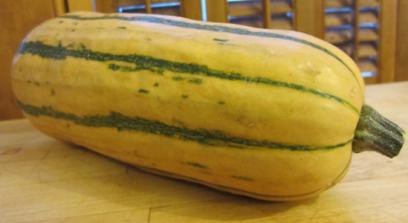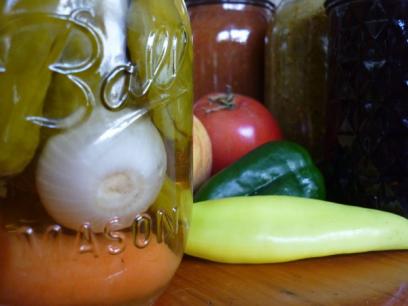Making homemade pickles has been a whimsical annual tradition in my family since I was a boy, and when I first lived with my bride-to-be out West, we thought it would be nice to carry on the tradition despite being far from home. The enthusiasm that produced those first few jars of pickles soon begat small batches of jams and jellies, experiments with dilly beans, a few stewed tomatoes, some apple sauce, and so on and so forth.
We have always cooked and gardened together, and soon found out that canning is very much a logical, aesthetic, and creative extension of those activities. Each year we have done a little more of each, and each year the three pastimes have fed one another, producing always more abundant, delicious, and inventive results. This trend has continued happily and unabated into our marriage and through our move home to Minnesota, but recently I’m growing concerned about its proportions.










